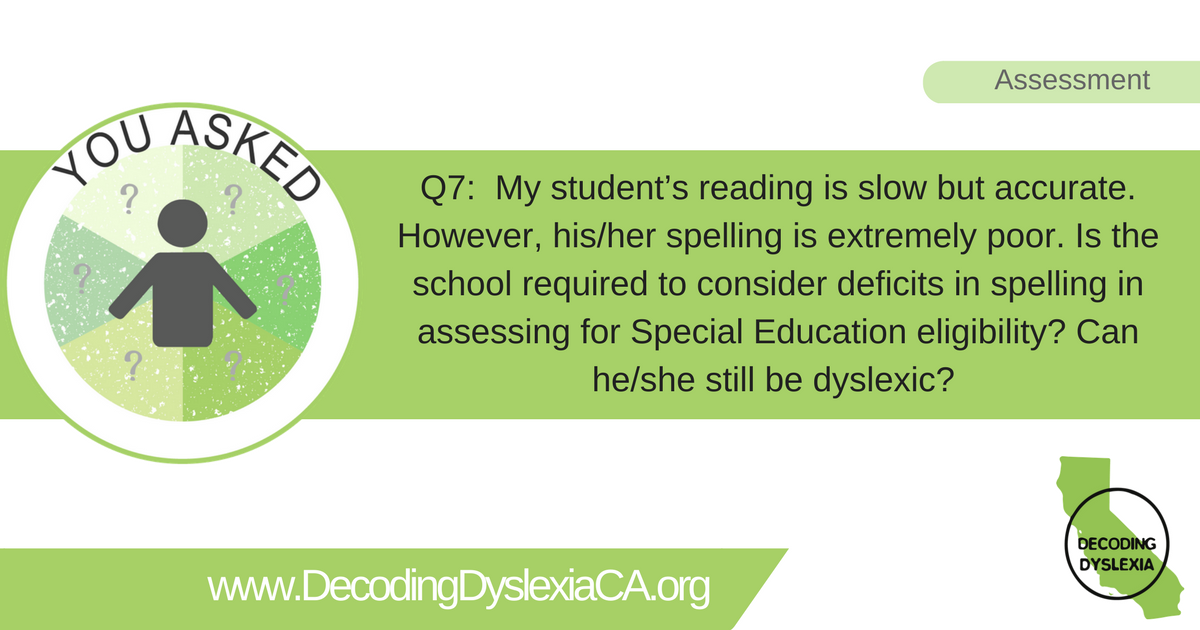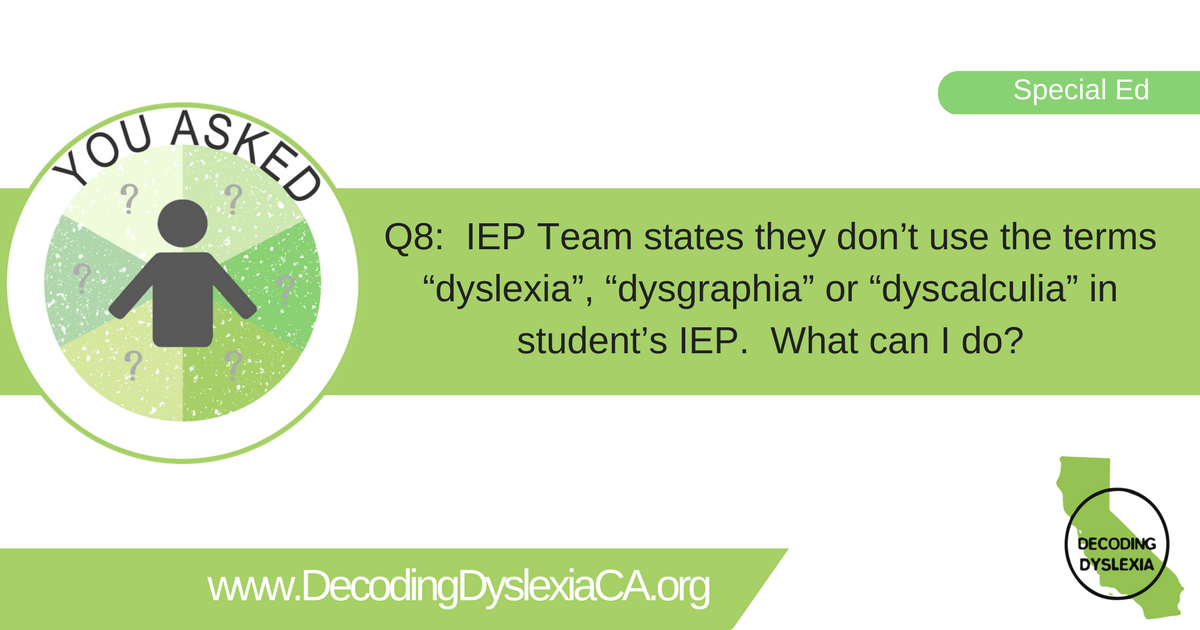Download a PDF version of this You Asked question and answer here.
Q7: My student’s reading is slow but accurate. However, his/her spelling is extremely poor. Is the school required to consider deficits in spelling in assessing for Special Education eligibility? Can he/she still be dyslexic?
A: California criteria specifically states that an impaired ability to read, write or spell should be considered in determining whether a student has a Specific Learning Disability for purposes of determining Special Education eligibility (Source: CA Education Code Section 56337(a)).
Almost all people with developmental reading or language disabilities have great difficulty spelling. In the definition of dyslexia, people with the condition known as dyslexia are noted to have “conspicuous” problems with spelling and writing. People can also have specific spelling disabilities — that is, they can be poor spellers, even though they are pretty good readers. (Source: The International Dyslexia Association). To download a complete copy of the International Dyslexia Association’s Fact Sheet on Spelling, click HERE.
Also note that while reading “accuracy is critical early on, the ability to read fluently gains in importance as the child matures. A child who reads accurately but not fluently is dyslexic”. (Source: Shaywitz, S. E. (2003). Overcoming dyslexia: A new and complete science-based program for reading problems at any level. Knopf, page 133)
For more YOU ASKED questions and answers click HERE


